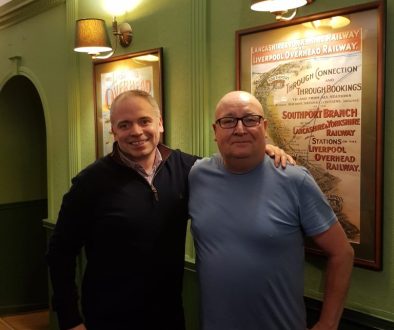Pedagogies of the working class: working class skills – by Ian Duckett
Curriculum development has, for me, always been concerned with three interwoven strands: the development of skills, knowledge and general education/enrichment with entitlement as its strong backbone.
In this attempt at what is essentially a pedagogical history and historical pedagogy of the significance of skills over the past 40 years when I use the term skills I am referring to the various incarnations of government sponsored generic skills initiatives from common skills to core skills to skills, the dabbling in essential skills and, most recently functional skills as they relate to mostly a narrow vocational curriculum but at a times a broader and more meaningful wider curriculum that has attended to cross the academic/vocational divide and generate a genuine learning curriculum.
While skills like problem-solving, teamwork, study skills communication have a crucial role to play in post-16 education I agree with the argument that the notion of either a knowledge-free curriculum or of a content free pedagogy is a manifest absurdity. As the basic skills only model of skills development still seems to be winning again over a fuller, more developmental version of skills comprising improving own learning, working with others and problem -solving, the need for a core module on ‘learning to learn’ is as important as ever.
These wider, survival skills that can be seen as street-wisdom or working class seem to be undervalued and undermined by those whose diktat it is to decide on what the curriculum is and is for.
Some pedagogy
As a young teacher reading Pedagogy of the Oppressed by Paolo Freire as a crusade for humanity it made me see dehumanization both as an historical reality and as an individual experience in the lives of many of the learners I worked with. This informed my teaching for many years. As time passed I saw the matter in greyer terms, but remain wedded to the view that barriers to learning are neither purely educational concerns to be addressed by teachers nor problems to be solved by social workers. In almost all cases they existed and continue to exist at the cusp of education and social care.
As a consequence of this I became more and more interested in the importance of learning things that can make a difference and have continued to be drawn to the idea of pursuing interests where possible and using the situation you find yourself in as your university if you are not in that fortunate position.
The economic imperative has raised broader educational and social questions. It is not just vocational training that people should receive. They have a right to be educated more broadly. Once again that might be seen purely in economic terms. How else can people experience fulfilment as human beings?
These question are as vital live now as it was then and successive governments have failed to address the skills gap.
Some history
Clearly skills, be they termed common, core, key, functional or anything else need to relate to either generic learning skills or the specific learning skills relating to a subject and have a major role to play, especially, one might argue, with students from less traditional backgrounds.
Similarly those genuine assessment for learning that have not just been state-sponsored assessment objectives aimed at perpetuating a system that required the many to fail so that the few can succeed in the system have fostered a genuine progressive curriculum. Curriculum development and delivery and assessment methodology alike need to be matched with both the appropriate skills, and attitudes and the syllabus aims and objectives which are: see meanings beneath the surface of, say a text; understand the nature and interplay of its constituent parts; show appreciation of what impacts on it; make a well-considered personal and critical response.
Armed with the results of a ‘skill audit’ practitioners are able to produce an introductory skills based modules including an identification of skills and attitudes, the aims of a specification and demystify he hidden curriculum . A teacher can, where these conditions exist, work collaboratively with learners on something that enhances the student learning experience, impacts on teaching and learning styles and develops the curriculum in its broadest sense. Ever since I can remember there have been problems about the assessment of generic skills and general education aspects of vocational education, be it liberal education; general studies; communication skills; general and communication studies; social and life skills; people and communication and, more recently functional skills
If then, there is nothing new about the problematic nature of assessing these transferable skills, supposedly a pre-requisite for a competitive UK industrial and service workforce, why the commotion on the pages of the education press and beyond? Perhaps it is because now, these ‘core’; ‘key’; ‘transferable’ or ‘generic’ skills are, for the first time, making an impact on traditional academia as well as vocational further education.

